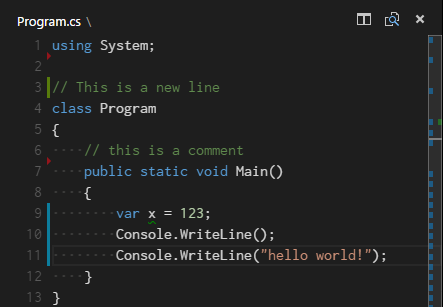

I like WebStorm's support and built-in GUI for running unit tests a lot more than the Jest plugins I've tried for VS Code. For example, here are a few off the top of my head:įile nesting works great in WebStorm, but is missing in VS Code: Nothing really proprietary there.īut some of the more subtle, built-in features of WebStorm I just find missing or in some way lacking in VS Code. 2 spaces instead of tabs) are configured automatically. editorconfig files, as many editors do, so our standards (eg. WebStorm has support for eslint, I think it even works out of the box if I remember correctly. I ended up using both IDEA and VSCode for different things: IDEA as an IDE when I need to work with projects for more than an hour, and VSCode when I just want to quickly edit a file, use the live share or remote editing.


Live share: it's a quite convenient thing if you need it Remote editing mode: everything runs so smoothly without having project files on your laptop Here's an example: you can focus a folder and trigger search, which will search in this folder it will honor exclusions, but in the same time it understands that when you do it from an excluded folder, you do want to search there Some feeling of context everywhere, because everything is built by one developer, instead of disjoint experience of using plugins in VSCode. Refactoring options, even text regex replacing is better in details Git integration and especially merge capabilities, local history, shelvesets Instant indexed search, search exclusions, searching in big files, etc. I'm experimenting VSCode quite a lot as a text editor and I like its look and feel, however whenever I try it as an IDE, I miss features from WebStorm/IDEA:
#Visual studio code vs webstorm windows#
The company plans to extend support to cover PHP, C++, C#, and HTML, which are the remaining languages that have IntelliJ IDEs." It's multi-platform - running on Linux, MacOS, or Windows - and Fleet's web page promises "a familiar and consistent user experience" offering one IDE for the many different technologies you might end up using.Exactly the same feelings. SD Times adds that Fleet "currently supports Java, Kotlin, Go, Python, Rust, and JavaScript. (And Fleet's home page says soon it will even run in Docker containers configured with an appropriate environment for your project.) "It supports a number of remote work scenarios and can be run locally on the developer's computer, in the cloud, or on a remote server," reports SD Times. (There's even a diff view for reviewing changes.) "Others can connect to a collaboration session you initiate on your machine, or everyone can connect to a shared remote dev environment," explains Fleet's web page. "It starts up in an instant so you can begin working immediately." boasts the Fleet web page, adding that Fleet "is designed to automatically detect your project configuration from the source code, maximizing the value you get from its smart code-processing engine while minimizing the need to configure the project in the IDE." And it also offers "project and context aware code completion, navigation to definitions and usages, on-the-fly code quality checks, and quick-fixes."įleet also offers a collaborative environment allowing developers to work together - not just sharing the editor, but also terminals and debugging sessions. "But wait, there's more! Fleet is also a fully functional IDE bringing smart completion, refactorings, navigation, debugging, and everything else that you're used to having in an IDE - all with a single button click." "When you first launch Fleet, it starts up as a full-fledged editor that provides syntax highlighting, simple code completion, and all the things you'd expect from an editor," JetBrains said. 28 announcement, many media pundits immediately characterized it along the lines of an "answer to Visual Studio Code," a "response to Visual Studio Code," a "competitor to Visual Studio Code" and so on. They'd received 80,000 requests in just the first 30 hours, reports Visual Studio magazine:Īlthough JetBrains didn't even mention VS Code in its Nov. ("To subscribe for updates and the public preview announcement at /fleet or follow on Twitter.") On Monday JetBrains (creators of the Kotlin programming language and makers of the integrated development environment IntelliJ IDEA) made an announcement: a preview for a lightweight new multi-language IDE called Fleet using IntelliJ's code-processing engine with a distributed IDE architecture and a reimagined UI.īy Friday they'd received an "overwhelming" number of requests, and announced the preview program had stopped accepting new requests.


 0 kommentar(er)
0 kommentar(er)
